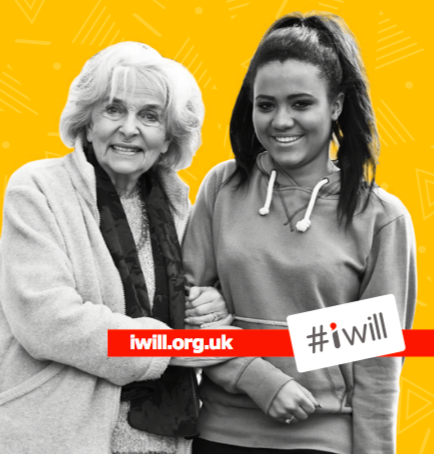#iwill have launched the results of the National Youth Social Action Survey 2017.
The appetite for social action remains strong: The majority of young people (58%) have taken part in some form of social action over the last 12 months, and 68% say they are likely to take part in the future.
However, only 39% take part in meaningful social action, which means they recognise the benefits to themselves and others and participate regularly throughout the year. This is a slight decline from 2016 but relatively steady compared to all other years since the baseline survey in 2014.
There continues to be a gap in meaningful social action participation between the most and least affluent young people (51% vs 32%). Young people from less affluent backgrounds, particularly those aged 16-20, take part significantly less than in 2016, contributing to the slight decline in participation overall in 2017.
This is important because those participating in meaningful social action are more likely to feel a range of benefits, reporting they do more sport and exercise, have higher life satisfaction and perceive that they have improved job prospects. This is in addition to the direct benefits to the people and environments young people are helping.
- Over half of young people (61%) who took part inmeaningful social action(recognising the benefits to themselves and others, and participating regularly throughout the year) in the past 12 months agree their involvement encouraged them to do more sport and exercise in their day-to-day life.
- Participation is also associated with higher life satisfaction: 8.4 out of 10 for those taking part in meaningful social action, vs 7.8 for those who have never participated – This difference is similar to the difference between adults who report ‘fair’ and those who report ‘good’ health.
- 81% of young people participating in meaningful social action believe it will help them get a job in the future.
These personal benefits reported are in addition to other benefits to themselves, to beneficiaries or to the environment.
Young people who participate in high quality social action are more likely to feel personal benefits.
Of those participating in any social action and who agree with all three quality statements included in the survey:
- 93% report medium-high to high levels of life satisfaction (compared with 85% of those participating in any social action who did not agree with all three quality statements)
- 87% agree social action will help their future job chances (compared with 52%)
Across all years of the survey a consistent proportion of young people participate in some form of social action, but do not recognise the double benefit and/or participate frequently.
Compared with those participating in meaningful social action (recognising the benefits to themselves and others, and participating regularly throughout the year), this group has a larger proportion of males (54% compared with 46% in the meaningful group), young people from lower socio- economic groups (44% vs. 37%) and 10-15 year olds (64% vs. 56%).
The vast majority (87%) of the 19% say they are likely to participate in social action again in the future.
- Primarily because they enjoyed helping other people (54%) and money was raised for a good cause (39%)
Since 2014, there has been a persistent underlying gap in participation between most and least affluent young people, with rates amongst the least affluent declining in 2017.
However, while appetite to participate in the future is still lower amongst less affluent young people, over half (58%) say they would like to take part in future.
Those from less affluent backgrounds cite a lack of interest and understanding as reasons for non-involvement.
- 33% do not have enough time.
- 25% are not interested.
- 24% never occurred to them.
- 18% don’t know how to get involved/no-one asked me.
But a third (31%) would be encouraged to take part in social action if they could do it with their friends, and 19% if they had more information about it.
There appear to be key transition points affecting young people’s participation, with involvement in meaningful social action (recognising the benefits to themselves and others, and participating regularly throughout the year) dropping off post-primary school,post-GSCEs and after age 18.
- 10-15 year olds would like to do it at school (26%)
- 16-20 year olds would like more information about social action activities (28%)
Education is key to participation: School, college and university remain the most common ways to get involved in social action (69%) Also important is the role modelling of friends and family – 96% of young people who have participated in meaningful social action have family and/or friends that also take part, compared with only 38% of those have never done social action.
Next Steps:
- Download the full report here
- If you are looking for a volunteering opportunity why not check out our Youth Ambassador Programme?
- If you are an employer wondering how you can encourage volunteering why not consider our Corporate Ambassador Programme







